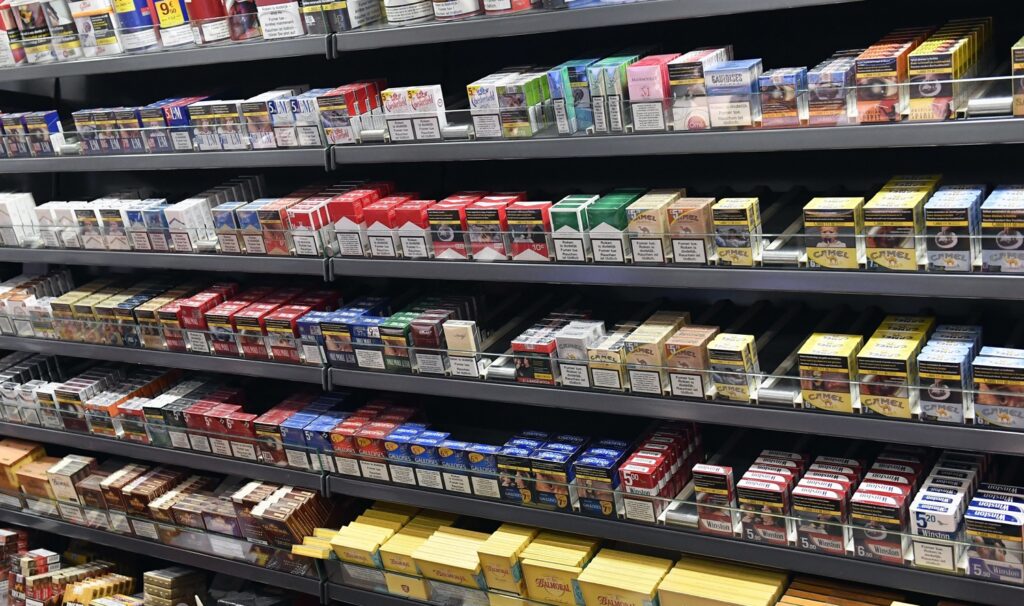Starting 1 April, tobacco products can no longer be displayed at points of sale according to an amendment to the consumer health protection law of 24 January 1977.
The ban covers cigarettes, cigars, rolling papers, water pipe tobacco, and e-cigarettes. Additionally, sales of these products are prohibited in food stores larger than 400 square metres.
All tobacco-related products, smoking items, or e-cigarettes must be concealed both inside and from the exterior of public points of sale, including bookshops, supermarkets, petrol stations, night shops, and duty-free stores at airports.
Retailers are required to hide products in drawers, closed containers, or behind curtains, sliding doors, or opaque glass panes.
Storage areas must remain neutral without lights, images, or brand names and should only be accessible to store personnel, closing immediately after use.
Customers can purchase tobacco products via a plain list which includes brands, types of products, quantities, and prices. This list can be available in paper or digital format.
Retailers who violate these regulations may face prison sentences ranging from one month to one year and fines between €2,000 and €800,000.
Tobacco lobby
New anti-tobacco measures, including a ban on the sale of tobacco products in supermarkets, will likely boost the illegal cigarette trade, according to Cimabel, the federation of Belgian-Luxembourg cigarette manufacturers.
Cimabel notes that hiding products in closed cabinets or behind curtains will increase costs for retailers. The federation believes that this measure will deter some retailers from continuing to sell tobacco and its derivatives.
Some retailers have even closed their shops, finding the required investments too significant and profitability unattainable, the lobby organisation claims. Cimabel fears Belgian consumers, who already turn to cheap illegal cigarettes, will increasingly purchase from illegal sources.
According to Cimabel’s data, over one-third of all cigarettes consumed in Belgium are purchased outside the country, causing an annual tax revenue loss of 2.2 billion euros.
"It is surprising that a government seeking additional revenue would act in such a counterproductive manner," Cimabel criticises.
Recent figures from the Cancer Foundation show that 24% of Belgians smoke, with 19% doing so daily despite health risks.
In Belgium, 14,000 deaths annually are attributed to smoking, and around 300,000 people suffer from tobacco-related illnesses.

